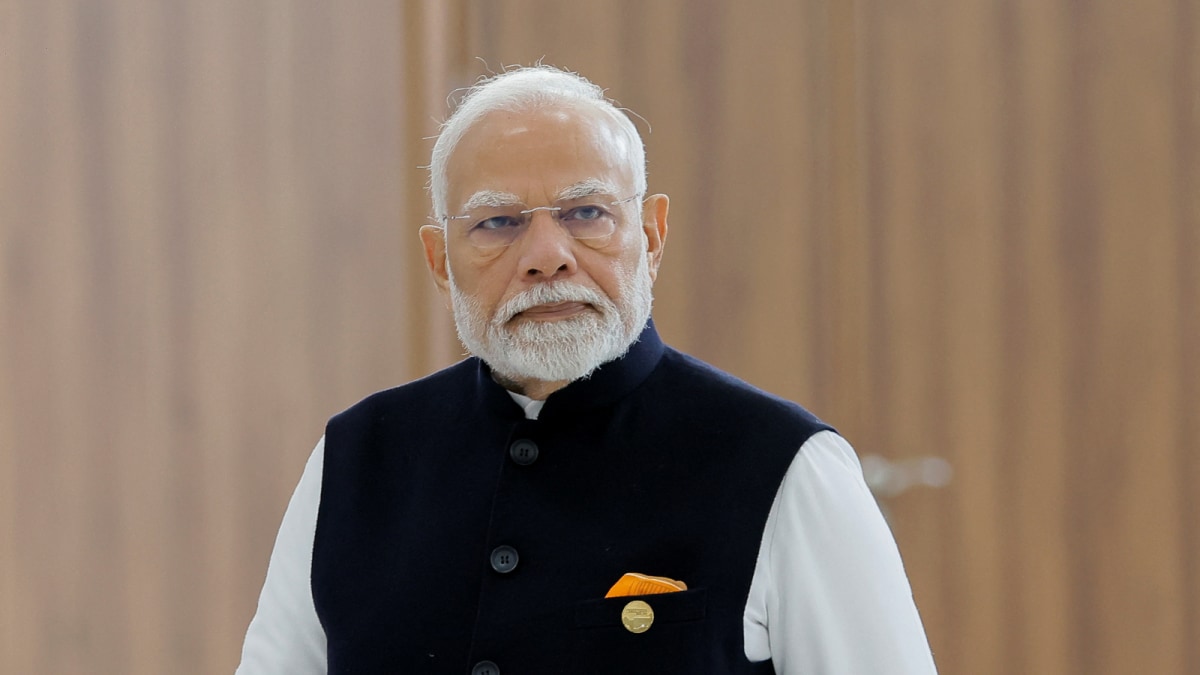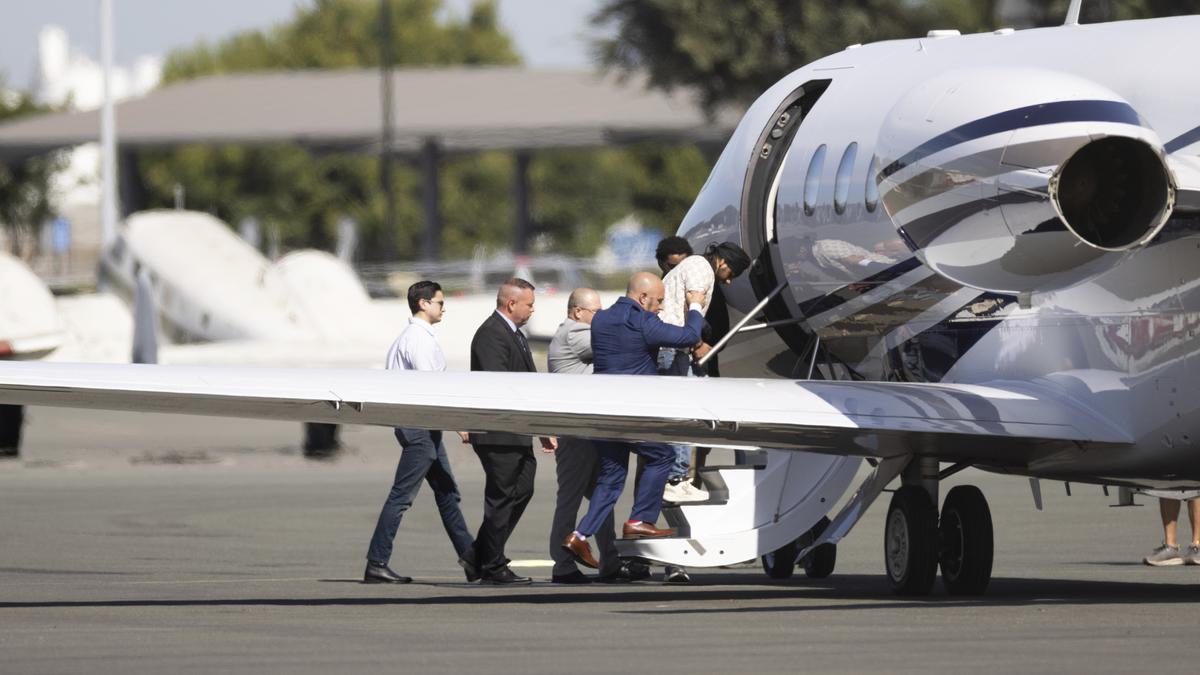ARTICLE AD BOX
As Chinese Foreign Minister Wang Yi began his two-day visit to India on Monday — his first since India and China completed the disengagement process along the Line of Actual Control (LAC) in November last year, and days ahead of Prime Minister Narendra Modi’s likely first visit to China in seven years — External Affairs Minister S Jaishankar underlined that the “de-escalation process” must “move forward”.
While he is in Delhi for the 24th round of talks between the India-China Special Representatives on the boundary issue on Tuesday, Wang will also call on Modi — he did not get a meeting with Modi during his last visit in April 2022. Wang and National Security Advisor Ajit Doval are the designated Special Representatives for the boundary talks. Doval travelled to China in December last year for talks after five years of the border standoff.
This is the first visit by a Chinese Minister since Modi and Chinese President Xi Jinping met for the BRICS leaders’ summit in Russia’s Kazan in October 2024, when they set the stage for disengagement of troops at two friction points along the Line of Actual Control (LAC) in eastern Ladakh and resumption of patrolling.
Modi is likely to travel to Tianjin in China for the Shanghai Cooperation Organisation (SCO) leaders’ summit on August 31-September 1, amid efforts by the two sides to repair bilateral ties after the clashes between Indian and Chinese troops in Galwan in June 2020. If the visit materialises, Modi is also expected to hold bilateral talks with Xi, a meeting that will take place amid rising tensions with the US over trade tariffs and purchase of Russian oil.
While India and China have completed the disengagement process along the LAC, about 50,000 to 60,000 troops on each side are still deployed along the border. The two sides are discussing the next steps of de-escalation and de-induction of military troops.
Shortly after his arrival on Monday evening, Wang met Jaishankar. As the meeting began, Jaishankar said in remarks that were broadcast: “Having seen a difficult period in our relationship…our two nations now seek to move ahead. This requires a candid and constructive approach from both sides.”
“In that endeavour, we must be guided by the three mutuals — mutual respect, mutual sensitivity and mutual interest. Differences must not become disputes, nor competition conflict,” he said, reiterating the position articulated during his visit to China in July for the SCO foreign ministers’ meeting.
Story continues below this ad
On Wang’s meeting with Doval on Tuesday, Jaishankar brought up the issue of de-escalation. “This is very important because the basis for any positive momentum in our ties is the ability to jointly maintain peace and tranquility in the border areas. It is also essential that the de-escalation process move forward,” he said.
Alluding to US President Donald Trump’s recent moves, Jaishankar said that “when the world’s two largest nations meet, it is natural that the international situation will be discussed. We seek a fair, balanced and multi-polar world order, including a multi-polar Asia. Reformed multilateralism is also the call of the day. In the current environment, there is clearly the imperative of maintaining and enhancing stability in the global economy as well.”
In an oblique reference to Pakistan-sponsored cross-border terrorism, he said: “The fight against terrorism in all its forms and manifestations is another major priority.” However, there was no mention of China’s military support to Pakistan in the public remarks.
Explained
Ahead of PM’s likely visit
“Overall, it is our expectation that our discussions would contribute to building a stable, cooperative and forward-looking relationship between India and China, one that serves both our interests and addresses our concerns,” Jaishankar said, providing the broader context of the normalisation efforts.
Story continues below this ad
He said India has worked closely with China during its presidency of the SCO grouping and wishes a “successful Summit with strong outcomes and decisions”. He said the occasion provides an opportunity to meet and review bilateral ties. “It is also an appropriate time to exchange views on the global situation and some issues of mutual interest,” he said, outlining issues related to trade and economy, pilgrimages, people-to-people contacts, river data sharing, border trade, connectivity and bilateral exchanges.
In a post on X after his meeting with Wang, Jaishankar said: “Had productive conversations on our economic and trade issues, pilgrimages, people-to-people contacts, river data sharing, border trade, connectivity and bilateral exchanges. Also exchanged views on global and regional issues… Confident that our discussions today would contribute to building a stable, cooperative and forward-looking relationship between India and China.”
In Beijing, Chinese Foreign Ministry spokesperson Mao Ning told a media briefing that the Special Representatives’ talks have played a positive and constructive role in the boundary negotiations. During the 23rd round of talks between Doval and Wang in Beijing last year, the two sides reached several important common understandings that are being actively implemented by the two sides, she said. These included delimitation negotiations, border management, mechanism building, and cross-border exchanges and cooperation, she said.
“On the upcoming talks, we look forward to working with India to first and foremost follow through on the existing common understandings, and on that basis, continue the in-depth communication with India to jointly keep the border areas peaceful and tranquil,” Mao said.
Story continues below this ad
On expectations from Wang’s visit, Mao said that China hopes to work with India to deliver on the important common understandings between the leaders of the two countries, keep the momentum of high-level exchanges, enhance political mutual trust, strengthen practical cooperation, properly handle differences, and promote the sustained, sound and steady development of China-India relations.
Since the beginning of this year, the two sides have maintained communication through diplomatic channels and actively advanced the implementation of those outcomes, she said. For the upcoming round of talks, China stands ready to continue the in-depth communication with India on the basis of the existing common understandings and with a positive and constructive attitude, and together maintain sustained peace and tranquility in the border areas, she said.
Earlier, as part of the efforts to normalise India-China ties, the Kailash Mansarovar Yatra was resumed, and New Delhi restarted the issuance of tourist visas to Chinese nationals. Both sides are also discussing the modalities to resume direct flight services between the two countries. As part of the engagement with Beijing, Foreign Secretary Vikram Misri travelled to China earlier this year, Defence Minister Rajnath Singh and Jaishankar went to attend SCO meetings in the last two months, and Doval also visited in June.



.png)
.png)
.png)

























 English (US) ·
English (US) ·